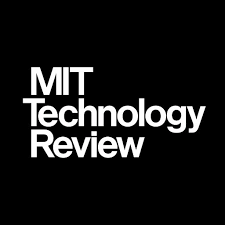

Extractive summaries and key takeaways from the articles curated from TOP TEN BUSINESS MAGAZINES to promote informed business decision-making | Since September 2017 | Week 310 | August 18-24, 2023
This startup has engineered a clever way to reuse waste heat from cloud computing
By Luigi Avantaggiato | MIT Technoloyg Review | August 18, 2023
Listen the Extractive Summary of the Article
Using heat generated by computers to provide free hot water was an idea born not in a high-tech laboratory, but in a battered country workshop deep in the woods of Godalming, England.
“The idea of using the wasted heat of computing to do something else has been hovering in the air for some time,” explains Chris Jordan, a 48-year-old physicist and the founder of Heata, “but only now does technology allow us to do it adequately. The idea could transfer the equivalent of 4.8 kilowatt-hours of hot water, about the daily amount used by an average family.”
When you sign up with Heata, it places a server in your home, where it connects via your Wi-Fi network to similar servers in other homes—all of which process data from companies that pay it for cloud computing services. Each server prevents one ton of carbon dioxide equivalent per year from being emitted and saves homeowners an average of £250 on hot water annually, a considerable discount in a region where 13% of the inhabitants struggle to afford heat. The Heata trial, funded by a grant from Innovate UK, a national government agency, has been active in Surrey County for more than a year. To date, 80 units have been installed, and another 30 are slated to have a boiler to heat by the end of October. Rather than operating with a data center located in an energy-intensive location, Heata works as an intermediary for computing: it receives workloads and distributes them to local homes for processing. Businesses that need to process data are using the Heata network as a sustainable alternative to traditional computing.
Heata’s solution is “particularly elegant,” says Mike Pitts, deputy challenge director of Innovate UK, calling it a way to “use electricity twice—providing services to a rapidly growing industry (cloud computing) and providing domestic hot water.” The startup is now part of Innovate UK’s Net Zero Cohort, having been identified as a key part of the push to achieve an economy where carbon emissions are either eliminated or balanced out by other technologies.
3 key takeaways from the article
- Using heat generated by computers to provide free hot water was an idea born not in a high-tech laboratory, but in a battered country workshop deep in the woods of Godalming, England. The startup Heata founded on this idea.
- Rather than operating with a data center located in an energy-intensive location, Heata works as an intermediary for computing: it receives workloads and distributes them to local homes for processing. Businesses that need to process data are using the Heata network as a sustainable alternative to traditional computing. In this process the technology involved able to transfer the equivalent of 4.8 kilowatt-hours of hot water, about the daily amount used by an average family.
- Heata’s solution is “particularly elegant,” as it use electricity twice—providing services to a rapidly growing industry (cloud computing) and providing domestic hot water.
(Copyright)
Topics: Technology, Sustainable Development, Startups, Innovation
